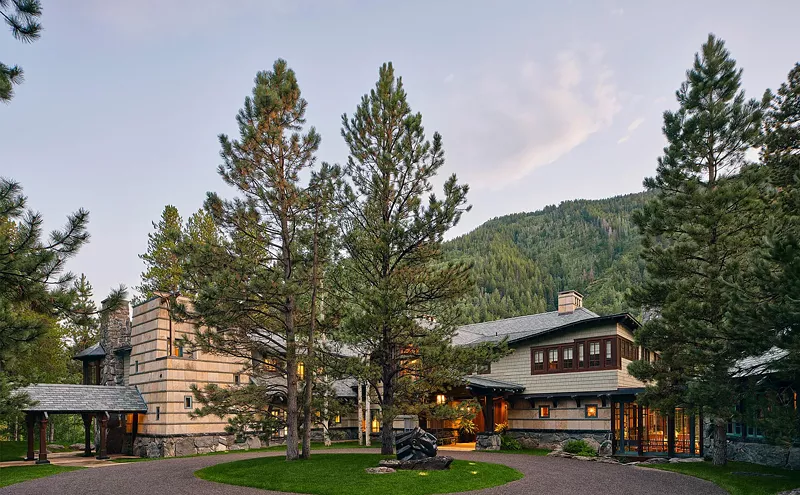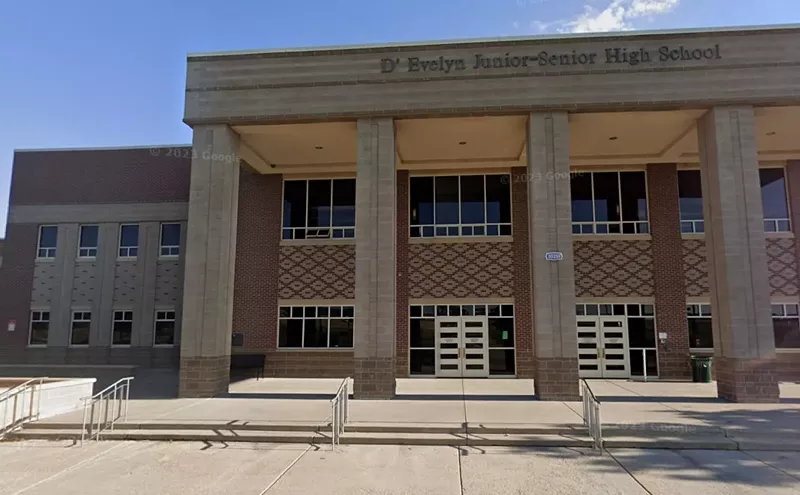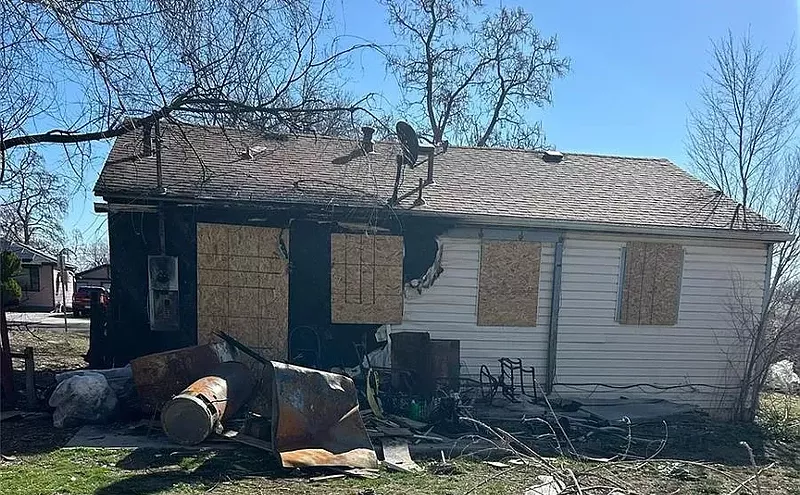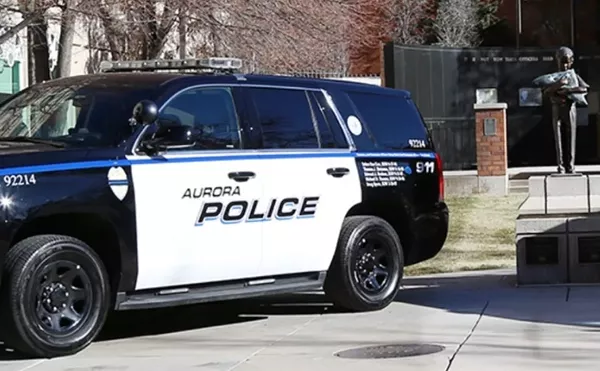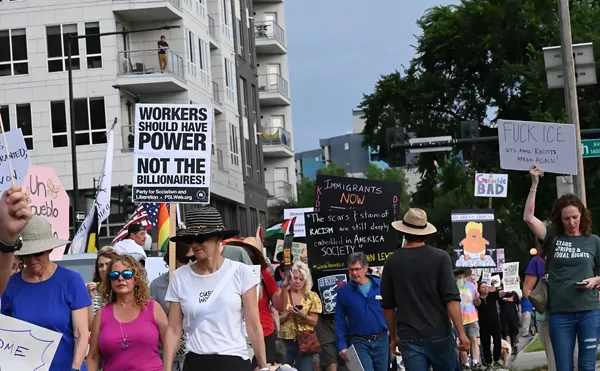On the one hand, Mayor Michael Hancock’s administration has earned praise by green-lighting the construction of 270 homes to permanently house people, introducing a new homeless work program, and overseeing the opening of the Lawrence Street Day Shelter.
At the same time, the city ramped up enforcement of the camping ban (with nearly 50 percent of all enforcement actions taking place in 2016 alone, despite the ban's having been around since 2012), engaged in large-scale sweeps with operation code names like “Night Crawler” and “River Dance,” and approved the use of donation funds (intended to help the homeless) to instead transport and store confiscated belongings.
As we reported earlier today, Denver is planning another homeless sweep for this week.
The police crackdown on homelessness, in particular, has caused rifts in the mayor’s own Commission on Homelessness, which canceled its last meeting in September, and led a civil-rights lawyer to file a class-action lawsuit against Denver in federal court – an ongoing trial that alleges constitutional abuses and illegal searches and seizures during the city’s homeless sweeps.
But a group of service providers, faith organizations and homeless advocates has been quietly meeting since the March sweeps to figure out alternative ways to help the 3,700 homeless people living in Denver.
Called the Alternative Solutions Advocacy Project — or ASAP — the group is a response to the city’s flip-flop, controversial policies toward homelessness. And beginning this winter, ASAP will emerge as a vocal and visible player in discussions around the issue, with two main goals: house homeless people at churches and other faith campuses using federal sanctuary laws, and call upon the city to immediately suspend enforcement of the camping ban.
Nathan Davis Hunt, who works with the Interfaith Alliance and is one of ASAP’s main organizers, says the organization includes discontented refugees from city politics — including those who have been shut out altogether from city decisions.
“You can tell that the sense of urgency between the city and our group is pretty distinct,” says Davis Hunt. "It's a really good group of folks who are, I think, brokenhearted and angry. We're ready for something else, and we're doing something about it."
Besides the Interfaith Alliance, ASAP members include the Buck Foundation, the Burnes Institute on Poverty and Homelessness, St. Francis Center, the ACLU of Colorado and Denver Homeless Out Loud.
After months of preparation and meetings, the group just unveiled its “Move Along to Where?” campaign, which includes an intriguing proposition: asking churches, synagogues and mosques to allow a number of homeless individuals to stay on their properties this winter. A one-page summary of the campaign is shared below.
Offered as an alternative to more traditional, and crowded, shelters like the Denver Rescue Mission and Samaritan House, which some homeless individuals purposely avoid due to personal concerns about health and safety, ASAP’s sanctuary proposal would allow up to eight people to stay at each participating faith campus.
"Congregations, because they are private properties and there are some religious land-use exemption codes on a federal level, have the opportunity to offer sanctuary," explains Davis Hunt.
As long as those campuses host eight people or fewer, they also avoid being classified as a “shelter,” which would subject them to government regulation.
ASAP hopes to convince five faith campuses to participate between Thanksgiving and late April, and is already in discussions with at least four congregations, including First Mennonite Church of Denver, which will soon hold a congregation-wide vote on the matter.
In its simplest form, "sanctuary" means allowing homeless individuals to pitch a tent on the property during the winter. Congregations could also allow indoors access if they choose.
"All the [faith campuses] need to provide is access to restrooms and water,” Davis Hunt says. “And if indoors restrooms are a problem, we can provide funds to have porta-potties and water tanks.... We're not saying that congregations have to provide things like food, just a safe space for people to sleep without getting harassed by the police."
In return, those seeking sanctuary would enter an agreement with the faith campus that would include a number of basic rules. “Don’t have drugs or alcohol, don’t vandalize or steal...stuff like that,” Davis Hunt says.
Ultimately, the goal is to form a community not only between those seeking sanctuary, but also with the faith community and service providers. “While not forcing it, ASAP wants to provide opt-in supportive services," Davis Hunt says. Already, ASAP has reached out to partners like St. Francis Center and Colorado Coalition of the Homeless, who employ their own teams of outreach workers, to connect potential sanctuary-seekers with workers who can transition them toward long-term housing solutions.
This is a welcome scenario for Tom Luehrs of the St. Francis Center, who says that the sweeps in Denver over the past year have disrupted his outreach workers’ efforts to help get homeless people off the streets.
"For those of us who are trying to reach out to them and support them, it becomes challenging,” Luehrs says. “Once camps are disbanded, and our outreach workers have been working with people in those camps, it's very challenging to find them again.”
So rather than looking for people uprooted by the city’s sweeps, having more permanent camps at faith campuses would allow his outreach workers to help a number of individuals over a period of months.
"I think people who are homeless are looking for stability in their lives," Luehrs notes.
As a member of both ASAP and the Mayor’s Commission on Homelessness, Luehrs also points out that there’s a noticeable difference in the groups’ expediency. "I think that everybody has good intentions…but I would certainly say the commission is in a transition period. Meanwhile it's good to see ASAP tap into another sector of the community that certainly has resources — buildings, property — and goodwill…. I'm amazed by how quickly the faith community has responded.”
But just because ASAP isn’t relying on city bureaucracies like Denver’s Road Home doesn’t mean that it’s shying away from politics.
The organization’s second goal is a suspension of the city’s enforcement of the Unauthorized Camping Ordinance, an effort that involves lobbying members of Denver’s City Council.
This is something that Terese Howard of Denver Homeless Out Loud has been particularly active with in her capacity at ASAP.
“For years, we've been trying to end the camping ban and advocate for spaces, so it's great that other organizations are coming behind that because it will create more force and strength to move things forward," Howard says.
Since the sweeps on March 8 and 9, Denver Homeless Out Loud, a highly vocal group that includes many members who are themselves homeless, hasn’t been able to get a meeting with Hancock — despite numerous requests. But Howard says that, unlike the city, ASAP has made concerted efforts to include DHOL and others who are homeless.
The coalition is also unequivocal in its belief that the camping ban – which the city enforces primarily through verbal “move on” orders rather than arrests – has been extremely damaging to the homeless community. But while most members like Howard and Davis Hunt would love to see it repealed, ASAP is trying a more tempered approach first.
"We think that it’s more politically feasible to get a suspension than to get it crossed off the books," Davis Hunt says.
ASAP is already meeting with councilmembers individually and wants to propose a suspension in front of the full council before the end of the year. To mitigate the effects of suspending the ban, ASAP also proposes that the city expand basic supportive services like portable bathrooms and storage facilities. Some of the money to do this, Davis Hunt says, can come from the cost savings of no longer using police to enforce the ban.
"We're going to directly ask two members of city council to sponsor a bill or proposal," Davis Hunt says. “There are five councilmembers that we're very confident that we'd get [support] from… There are three that could be turn votes. And then the leftover five are definitely [unsupportive]."
Because Denver has a strong-mayor system of government, however, Hancock (who supported the camping ban when it passed in 2012) can veto any bill unless city council musters a nine-vote super-majority.
"I don't know if we'll get nine votes this time around, but we think it's worth pushing the issue just to get that moral outrage into the public eye,” Davis Hunt says. “We've come to a point where we take it for granted that people are sleeping on the streets and panhandling in our intersections, but it's not normal and we've got to be shaken from that idea. It’s morally outrageous, and it's not the kind of city that we want to live in."
Here's the summary of the "Move on to Where?" campaign.
Alternative Solutions Advocacy Project “Move Along to Where?” Campaign
Follow Westword News for additional coverage of ASAP this winter. Also, check back later this week for an accompanying piece that explores some of the problems — including canceled meetings and a high-profile resignation — occurring on Hancock's Commission on Homelessness.



